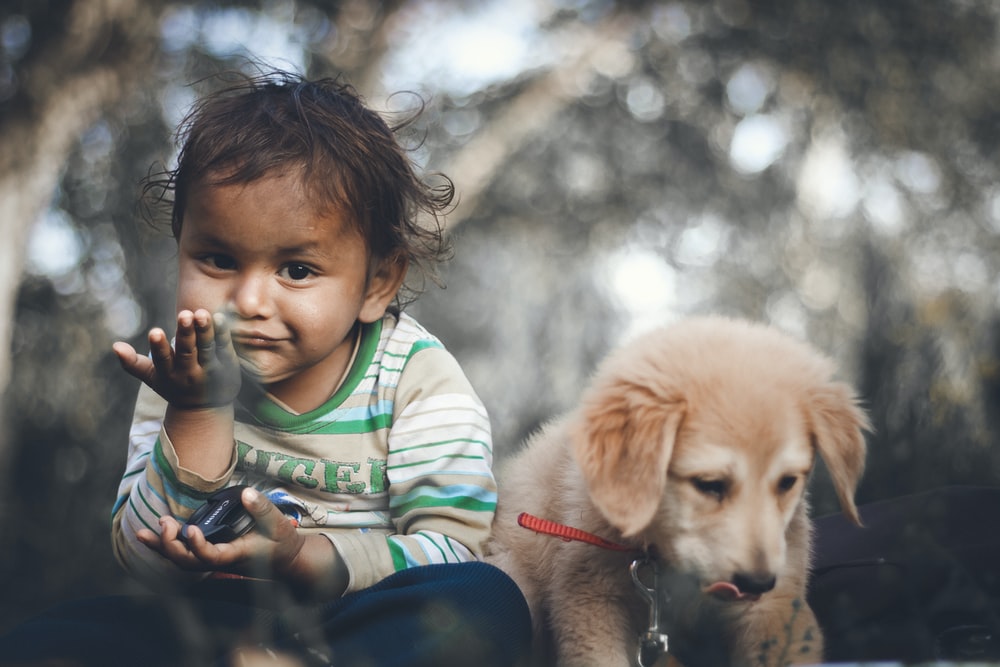Shopping Cart (0)
Your cart is currently empty.
TRIPLET30: 30% off on purchase of 3 books
Your cart is currently empty.

Grieving the loss of a pet is painful at any age. If you have watched Marley & Me, a real tear-jerker, you would have resonated with the pain of the family when they had to euthanize Marley, and bury him under their favourite tree in the front yard. Animals - be it a dog, cat, rabbit, bird - have a special place in a child’s life and no matter what age, they tend to grow close to their pets. These adorable four-legged animals serve as companions and friends to a child. The loss of a pet therefore, can cause a lot of grief to the child, and this grief is not too different from that of the loss of a loved one. Other emotions like anger, sadness, emptiness, may accompany grief and the child will have to battle them with a strong mind.
Acknowledging your child’s emotions
As a parent, one must never underestimate the grief the child is feeling. Putting it off as a minor issue might blow up out of proportion. Every child reacts differently and might feel grief at different stages. Some might feel grief initially and it may wear off, while others might feel it down the line. Psychiatrist Dr Jaiprakash Agrawal suggests that sometimes grief can transform into physical consequences and says, “This is called grief reaction. A person may experience sleep and appetite loss, experience low mood, become pessimistic, etc.” He advises that it’s important to deal with grief rather than suppress it.

Dealing with loss across all ages
Infants and very young children are easily affected by emotions and situations around them, and tend to get disturbed easily. On the other hand, toddlers and preschoolers do not understand the concept of death and believe that their pet will return eventually. Primary school children are slightly more mature and the concept of death can be carefully explained to them. Adolescents have a lot already going on with them physically and emotionally, and they may tend to hide their emotions or not express them openly. No matter how young or old your child may be, it is important to talk to them openly about the matter of death and the permanency associated with it.
Help your child cope with the loss
As a parent, you might want to shelter your child from the idea of death, but it is advisable to help your child cope with it. The loss of a pet might be the first time your child is facing the loss of a loved one. Undergoing the process of grieving will help your child familiarize with the emotions that accompany it and also help them learn to cope with losses later in life. Here, again, the age and maturity level of your child will come into picture. You have to carefully use the ‘death’ word. If you have to put the pet to sleep, perhaps give your child the chance to say a final goodbye. Calmly, and briefly explain to your child and answer whatever questions crop up in your child’s mind. “This decision shouldn’t be rushed. Mourn your loss fully and then, when you feel emotionally stable again to connect with someone, you can go for it. It is totally a personal choice,” suggests Dr. Sudhesh Surve, a veterinarian.

Be honest
We often try to sugarcoat the truth to make it more digestible to our child. That might not always be the right way. In this case, stick to the truth. You do not want to tell your child that their pet ran away or give them hope that the pet will eventually return. Make them understand the idea of death in a subtle manner. Be there for your child and do not let your child get into a feeling of guilt of not having taken good care of the pet. You can also express your own sadness and help your child open up about their emotions too.
As the adage goes, time is a great healer and this shock of losing a pet will slowly subside too. Help your child heal and be along with them in the process of moving on. You can find special ways to help your child remember the pet in a happy manner.
You have no items in wishlist.
We will send you an email to reset your password.
| Title |
|---|
| Price |
| Add to cart |
| Type |
| Vendor |
